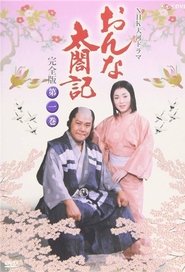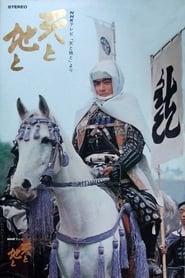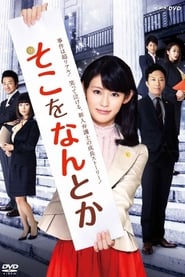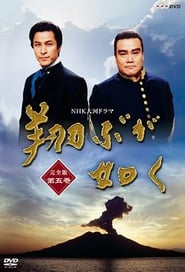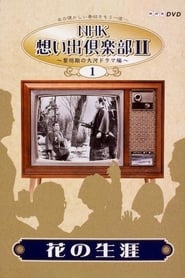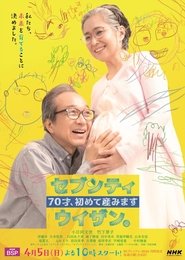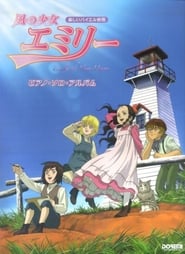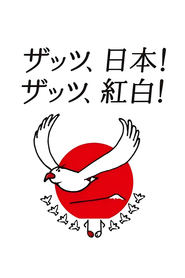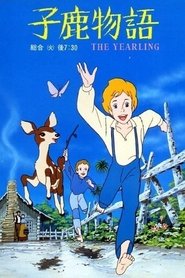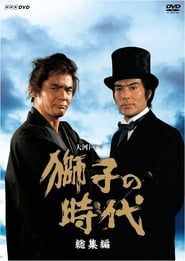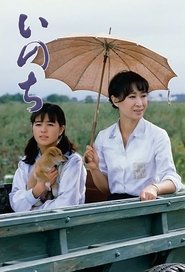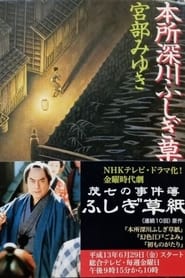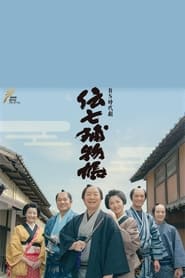Nhk TV Series - Page 6
-
Onna Taikoki
1981
Onna Taikoki
1981
Focusing on the life of Nene, the good wife who supported Toyotomi Hideyoshi, the world of the Warring States and the rise and fall of the Toyotomi family are depicted from the perspective of a woman. -
Genroku Ryoran
1999
star 7.7The 38th NHK Taiga Drama is Genroku Ryoran. The "Forty-seven Loyal Samurai" is one of the most enduring and best loved stories of Japan's history. Generations have grown up hearing the stirring tale of Oishi Kuranosuke, chief councillor of the Ako clan who leads his men through suffering and hardship to ultimately avenge their lord after he is unjustly forced to commit harakiri. NHK's 38th Taiga Drama "Genroku Ryoran" is the ambitious remake of this classic epic and boasts a cast that reads like a Who's Who in Japanese entertainment. -
As If In Flight
1990
star 6Historical drama about the life of Saigō Takamori and his involvement with the Meiji Restoration. -
Strategist KANBE
2014
star 9.5July 1590, Odawara. Toyotomi Hideyoshi's army had surrounded the Odawara Castle for over 3 months, hoping to conquer this last obstacle to his dream of the country's unification. Standing at the gate of the castle, a lone man facing the menacing guards shouted out: "Do not throw your lives away. Treasure living!". Not long after, the castle gates opened and the reigning lord surrendered. The name of that man is Kuroda Kanbee. An excellent military strategist, he worked hand-in-hand with Hideyoshi to unify the country. -
Document 72 Hours
2006
star 8.7An unusual documentary series that delves into human dramas through chance encounters with ordinary people at selected spots. Filmed over 72 hours in a single location, the show captures glimpses into people's lives as they open up and share their stories. Japanese Broadcast Version -
NHK Documentary
1999
NHK Documentary
1999
Hard-hitting documentary series that takes an in-depth look at some of the political, economic, and social challenges that Japan and our world is facing. -
Emily of New Moon
2007
star 7Based on the Emily of New Moon novel by Lucy Maud Montgomery. Emily is an orphan who gets sent to live with her relatives on Prince Edward Island, after her father dies. In New Moon she lives with her Aunt Elizabeth, Aunt Laura, and Cousin Jimmy, and learns to adapt with the help of her imagination and new friends. -
NHK Kouhaku Uta Gassen
1951
star 8NHK Kouhaku Uta Gassen (NHK紅白歌合戦, "NHK Red and White Song Battle"), more commonly known simply as Kouhaku, is an annual New Year's Eve television special held on December 31 every year, and produced by Japanese public broadcaster NHK. It is broadcast live simultaneously on NHK General TV, BS4K, BS8K and NHK radio (nationally) and internationally on NHK World Premium and some overseas (mainly cable) broadcasters who buy the program. The program divides the most popular music artists of the year into competing teams of red and white. The 'red' team or 'akagumi' (紅組) is composed of all female artists (or groups with female vocals), while the 'white' team or 'shirogumi' (白組) is all male (or groups with male vocals). -
Kojika Monogatari
1983
Kojika Monogatari
1983
-
My Worst Friend
2023
star 8Hotaru (Makita Aju), a college senior on a job-hunting losing streak, finds her childhood friend Miharu (Takaishi Akari) her nemesis. Miharu responds to disputes in their classroom with a fair argument and overcomes various accidents with her ingenuity, always basking in the dazzling spotlight. Wanting to be like Miharu, Hotaru applies for the employment exam acting a girl someone like Miharu and she passes the first paper screening. Still puzzled by the situation, she continues to lie with a smile for the following interview, and the next, and the next... (Source: TV Japan) -
Asia Insight
2012
Asia Insight
2012
An in-depth portrait of Asia today, covering its dynamism as a center of growth as well as its traditions tossed around by the advance of globalization. -
Reporter Blues
1991
star 4.9Reporter Blues is an Italian-Japanese cartoon/anime television series created by Marco Pagot and Gi Pagot and directed by Kenji Kodama. It consists of 52 half-hour episodes. The first season was aired in France in 1991. The second season was aired in 1996. The show was co-produced by RAI and TMS Entertainment. -
The Lion Era
1980
The Lion Era
1980
It depicts how the winner, the Satsuma Clan, and the loser, the Aizu Clan, survive through the Edo period and the Meiji Restoration in their respective ways of life. -
Inochi
1986
Inochi
1986
The drama begins in August 1945, three days after the end of the Pacific war. A freight train completely jam-packed with passengers heads for Aomori from devastated Tokyo. On the train is Takahara Miki and her sister Sachi. Miki and Sachi are the daughters of a wealthy landlord living in a village in the Tsugaru area in Aomori prefecture, but they have been living in Tokyo since before the war to attend school. After seeing her village does not have a doctor, Miki is determined to become a rural doctor. -
Moshichi
2001
Moshichi
2001
A mysterious humanistic period drama, setting in the Edo Period. As Okappiki, unofficial collaborators who played a marginal role in police functions, Moshichi (Takahashi Hideki) solves a number of mysterious incidents that occur in downtown Edo. -
Denshichi Torimonocho
2016
star 7Denshichi of Kuromon-cho hates crime and hates people. He is a stylish and kind Okakitori. Denchichi is a chivalrous and gentle okabiki, and he will not tolerate bad people under the ten purple hands of Murasakibusa, entrusted to him by the magistrate of Toyama. Denchichi is sent by Koi Nyobo's fire to destroy the evils of Edo.
